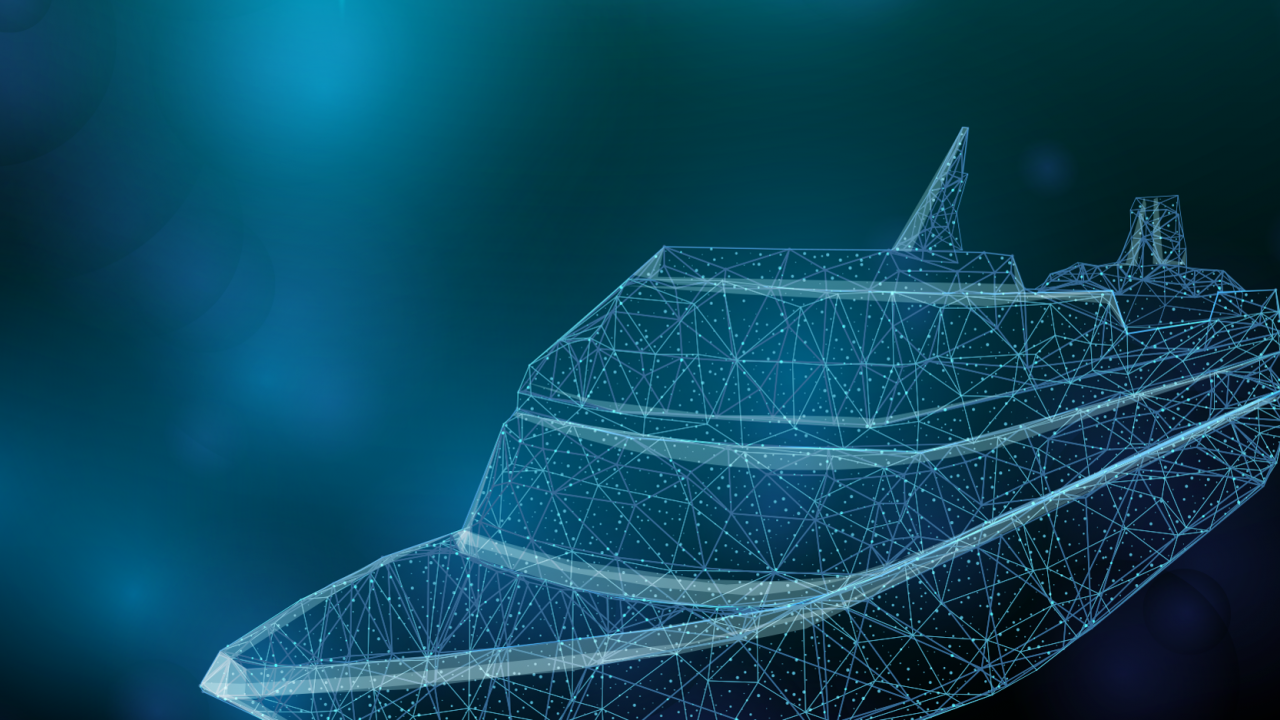New framework will provide increased clarity to shipping’s stakeholders in assessing the actual readiness of existing fleets and newly built vessels for zero carbon fuels
Posted on: 10 November 2022
Lloyd’s Register (LR) has launched a five-level framework for assessing the actual readiness of a vessel for the transition to zero carbon fuels. Published by LR’s Maritime Decarbonisation Hub, ‘Zero Ready Framework – helping to ensure shipping can deliver our zero-emissions future’, ranks vessel readiness for zero carbon fuel operations from 1 (highest level of readiness) to 5 (lowest level of readiness), and measured on a well-to-wake basis.
The framework has been created to offer clarity around the term ‘readiness’ which is used in multiple ways across the shipping industry. The rankings were developed based on observations that some shipowners have had a design for conversion to zero carbon fuel done as a paper exercise, without a plan for how the conversion would be carried out. Others have some or all the required equipment (for example: engine, tank, pipework, fuel management system) already installed. Another group of vessels have a dual fuel engine that could run on a zero-carbon fuel but may require an engine retrofit to do so.
An assessment of a container ship route in Southeast Asia by the LR Maritime Decarbonisation Hub [1] found that, despite pushing forward of new initiatives by financiers, insurers and ship charterers to achieve zero emissions, 27% to 30% of vessels newly built between 2022 and 2050 will still require conversion to a different fuel in order to meet zero targets.
Charles Haskell, Director, LR Maritime Decarbonisation Hub, said: “As ships built today will still be in service in the 2040s, it’s essential for shipowners to understand the full implications of actual vessel ‘readiness’ for zero carbon fuels to meet the industry’s 2050 decarbonisation targets. These differing standards and classifications of ‘readiness’ across the industry have made it difficult for owners to conduct a transparent assessment of their vessels’ commercial prospects in a zero-emissions future.
In view of the significant structural and technical complexities of vessel conversion, we developed the ‘Zero Ready Framework’ to help investors, charterers, insurers and prospective shipowners better understand and assess the risks and conversion costs of both existing and newly built fleets.”
“Until now, we have found that current regulations have focused on near-term improvements in vessel energy efficiency and GHG emissions, but have yet to address the longer-term goal of vessel readiness for zero carbon fuels,” said Andrew Keevil, Strategy Development Manager for LR Maritime Decarbonisation Hub and lead author of the framework.
“We designed the ‘Zero Ready Framework’ to accommodate the spectrum of vessel capabilities in both the fleet and the order book. We hope that the industry adopts these readiness levels, thus creating a common understanding of where ships are today on the journey to zero. By committing to a clearly defined readiness standard by a specified date, shipowners are better able to factor climate risks into their business plans and demonstrate climate action to both their customers and stakeholders.”
The framework has been developed through cross-industry consultation through a series of workshops with industry stakeholders.
Haris Zografakis, partner at the law firm Stephenson Harwood LLP, who’s involved in various maritime decarbonisation projects and is an expert in the contractual aspects of decarbonisation, said: “Many aspects of decarbonisation suffer from an absence of accepted standards and precise definitions; for example, in relation to measurement of emissions, the specifications of new fuels, and their fitness for purpose. Another nebulous area is the commonly used term ‘zero-ready’ vessels (either newbuilds, or following retrofits), which has no classification or regulatory definition.
Standards and clarity are not merely desirable for debates, policies, technological progress, or investments. They are also critical in the world of contracts: shipbuilding, ship conversion, chartering, but also finance, where uncertainty and ambiguity always gives rise to disputes, for example in relation to pre-contractual misrepresentations, or breach of contractual warranties. LR’s efforts in creating a set of definitions for the various types of ‘zero ready’ vessels is an important development, as it will allow parties to incorporate the relevant definition into their contracts, so as to identify precisely which type of readiness they adopt. A fine example of voluntary initiatives, aided by contracts, moving ahead of regulations.”
Nikos Benetis, Technical Director, Greenheart Management, the in-house shipping desk for Hayfin Capital Management’s maritime funds, said: “A first in our industry where stakeholders have had an opportunity to voice their concerns and challenges via a focused and well driven forum/platform, with a set deliverable. The framework captures and summarises the critical factors in a concise way and sets out clearly defined discussion topics and roadmap for owners, investors, manufacturers and shipyards, that will support understanding, benchmarking and ultimately adoption within the industry.”
Tim Berckmoes, CEO of Anglo Belgian Corporation, added: “Zero carbon fuel readiness is a critical issue for shipping today. The Zero Ready Framework defines a series of levels that will help to steer the industry to zero through step-by-step improvements in readiness. Both dual fuelled and 100% hydrogen marine engines are already available, enabling the highest possible levels of readiness in the 1MW to 2.6MW power range today. In addition, innovative engine platform solutions will deliver the flexibility needed to respond to uncertainty and evolve with vessels as they progress upwards through the readiness levels.”
Whilst the ‘Zero Ready Framework’ signals a positive step forward, the LR Maritime Decarbonisation Hub continues to seek to further collaboration with potential partners to apply the framework in projects and initiatives to advance shipping’s decarbonisation.
Download the ‘Zero Ready Framework – ensuring shipping can deliver our zero-emissions future’ white paper.




